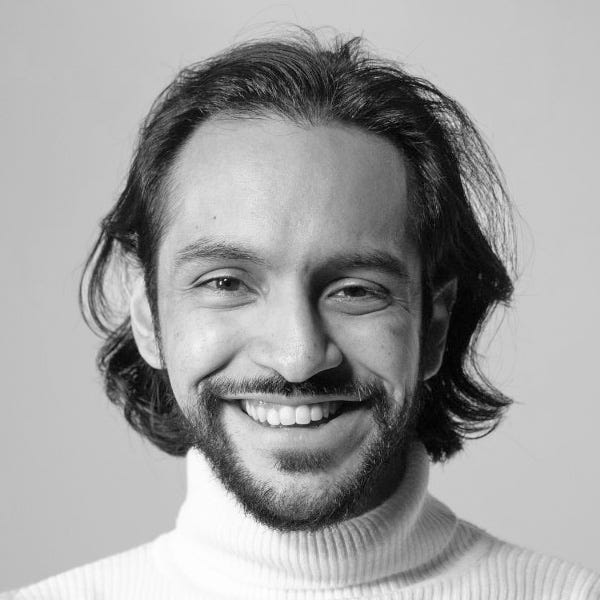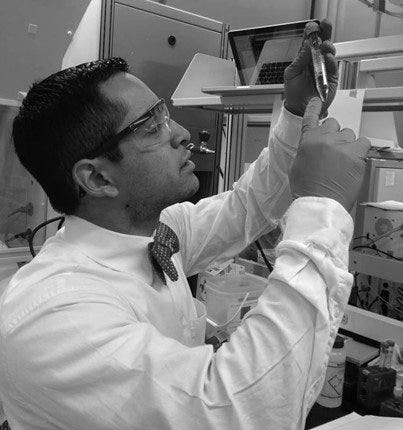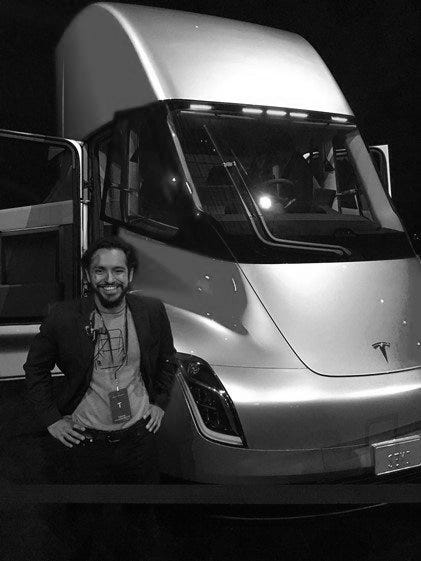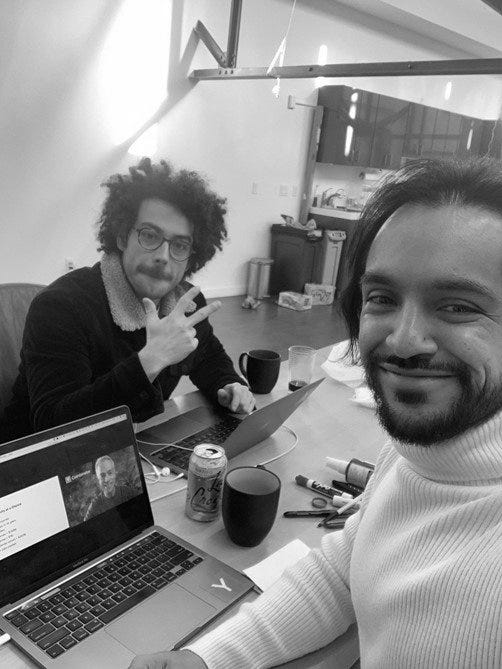Josh has the ability to dream big. What might seem impossible for most people, Josh breaks it down and makes it happen. An engineer by training, and a climate change activist by heart, it is safe to say that our future is in good hands. We learned more in one hour talking to Josh than reading all the books on climate change. What an inspiring day!
Josh is the co-founder and CEO of Noya, a company with the goal of reversing climate change by pulling CO2 directly from the sky. He studied Chemical-Biological Engineering at the Massachusetts Institute of Technology (MIT), where he also investigated alternative chemotherapeutic drug delivery methods for oral cancer lesions. He has also participated in Y-Combinator and is a good friend of one of our previous visionaries, Dr Quinn Wang. Such a small world!
Josh realized early on that he wanted to impact climate and made it his north star to accumulate as many relevant experiences before starting his entrepreneurial journey. He began working in sales at Labdoor, later becoming their product manager. Then, Tesla came knocking, and he worked there on the Model 3 program as a project manager. His mission is simple yet one of the hardest to achieve: reverse climate change for good.
This interview has been edited and condensed for clarity.
What did you dream of when you were a kid?
I’ve always enjoyed going deep down into rabbit holes. As a kid, I had many obsessions. My first (obviously) goal was to become an astronaut. I clearly remember going to my local library and renting all their books about space. Then, I got into extraterrestrial life, and the librarians thought I was going nuts (laughs). I always knew that I was going to do something related to the world of sciences.
How was your journey getting into MIT?
My mum worked in the military, and we moved a lot. I attended 13 different schools across the country. Interestingly, in every place we lived, we were within striking distances of hurricane zones. I clearly remember the many storms, the day my neighbour's roof went missing, and the local church torn in pieces. By the time I got into MIT, I had realised that I wanted to focus on climate.
What drove you to study Chemical and Biological Engineering?
It would bring me closer to my overarching mission: solving problems that massively impact the world. Throughout college, I kept my rabbit hole mentality, and I deep dived into research, lab projects, and experiments. Ultimately, all these experiences made me even more convinced about my mission.
What happened after college?
I had an existential crisis during my senior year. I had trouble figuring out what to do with my life. It was an entirely normal thing to feel for a 22-year old with limited experience. However, I wanted to learn more about business and leading people. After graduating, I decided to give that a shot.
My first startup job was in sales, and I felt very uncomfortable in the beginning. Yet, it was a very enriching time. For the job I did before my first sales job, I spent nine months living out of my car and travelling across California. I drove 25,000 miles with my Jeep Patriot, and I had the best time ever.
Then, Tesla. How did you end up there, and how was it?
It was pretty random (laughs). A recruiter reached out, saying they had an opportunity for me. I didn’t know anything about cars, but I was excited to build things at scale.
Career development is knowing where you want to end up and being open to any sort of path that can help you get there.
I worked on developing the Model 3, and my goal was to scale the number of Model 3’s Tesla could produce to reach the dream of the first mass-market EV. I always have one question in mind: “How do we build big things quickly and cheap at scale?”. Tesla helped me to get closer to my North Star: making a dent in the world of sustainability and climate.
What was the craziest moment at Tesla?
It must have been the launch of the semi-truck. It looked more like an aeroplane than a truck, and this 52-foot-long beast went from 0 to 60 in five seconds. It was mind-blowing seeing it live on stage.
But the craziest moment was when suddenly Elon Musk introduced the new roadster. Nobody expected it, and everybody went freaking nuts. Many at Tesla, myself included, didn’t even know they were working on a new car. It was a crazy night that I will never forget.
Founding your own company. How was that different from your corporate experiences?
Being a founder is unique. Essentially, you sign up to not get paid for an undetermined period of time, maybe even ever. You work all the time and your entire lifestyle changes from one day to another. However, it made me feel more fulfilled than I ever did elsewhere.
Working towards a mission is the best feeling.
Noya. Can you provide us with the aha moment and how everything started?
Everything began after seeing all the wildfires in our region and how quickly the situation deteriorated. I started to spend more time reading about the underlying causes, and one day I asked myself the question that would change everything: “If the increase in CO2 emission is responsible for climate change, why can’t we just pull it directly from the sky?”.
We knew it was plausible, but the existing technologies were too costly and not scalable. We investigated the costs and discovered that a tremendous amount of capital was tied to the air contractor component, and we’re talking about 30-40% of the overall costs. This finding led us to the creation of Noya, a more affordable cooling tower. Crazy, right?
What is the vision of the company, and how will you make it happen?
Our vision is to accelerate the world’s transition to carbon negative existence, and we will achieve this vision with our cooling tower-based carbon capture technology.
Cooling towers explained Select an Image
YC. What are your main takeaways from the program?
It was an incredible experience. We were part of the first remote cohort and were first afraid it wouldn't be as nice. However, it was still valuable, and we got to know many inspiring mentors and founders who played a pivotal role in our business success.
YC helped us to make sure that we created a product people love.
Going back to climate change. Can we solve all these problems with the help of technology alone?
That is certainly a controversial and well-debated topic (laughs). My approach to this problem is to do as much as possible, as it is scientifically feasible to solve all these problems. I do believe technology will help us solve it. However, it is only one piece of a complex system. We also need favourable policies, more funding opportunities, and more reliable markets. All these things together will help to reverse the clock and solve the problem. In short, everyone needs to play their part, especially policymakers.
What advice do you give our readers to reverse climate change?
Unfortunately, there is no silver bullet in individual behaviour that will drastically reduce global greenhouse gas emissions. We already know what we should do, for example, buying an electric vehicle, considering a plant-based diet, using public transport etc. I encourage everyone to use their skillset and spheres of influence to make a change beyond themselves. Please consider starting a climate tech company or join one - there are many great ones out there (we’re hiring).
When was the time you felt the most vulnerable?
I feel very vulnerable as we speak. It feels like my life as a startup founder exists in one of two extremes: everything is going great, or everything is horrible, and everything is falling apart. I believe the feeling of vulnerability will never go away completely, and it will probably grow as we grow.
What would you do if you only had 30 days to live?
I would travel as much as possible and bring my family and loved ones with me. I always wanted to see all the seven continents of the world. I would also spend my last time solving our problem, as it is something that I genuinely love doing.
Do you have an inspiring figure?
My mother. She was a single parent for most of my life, and grew up with nothing and focused solely on providing a good life for us, the kids. She always inspired me, and a lot of my mentality and view of the world comes from her.
One book?
The Hard Things About Hard Things - Ben Horowitz
If you were to start another company today, what would be your one-billion-dollar idea?
I had a fascinating conversation with another climate founder, and we both agreed that there are no great ways to know the climate impact of anything that we buy. I would love to know what effect the last bottle of water or furniture I purchased has on the climate. I think providing an educational platform that helps consumers understand the climate impact of their product has great potential. I would also be the first user :)









